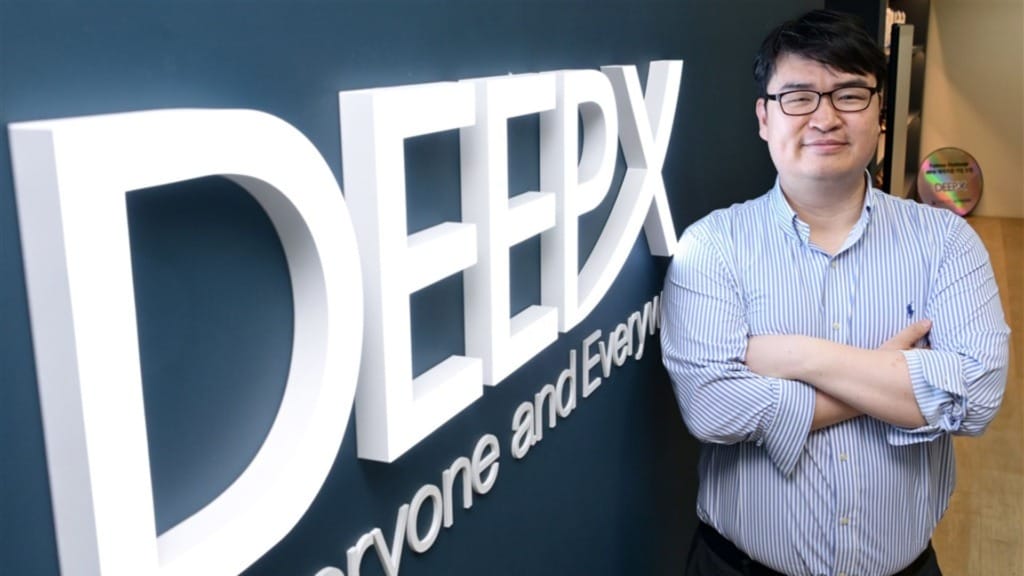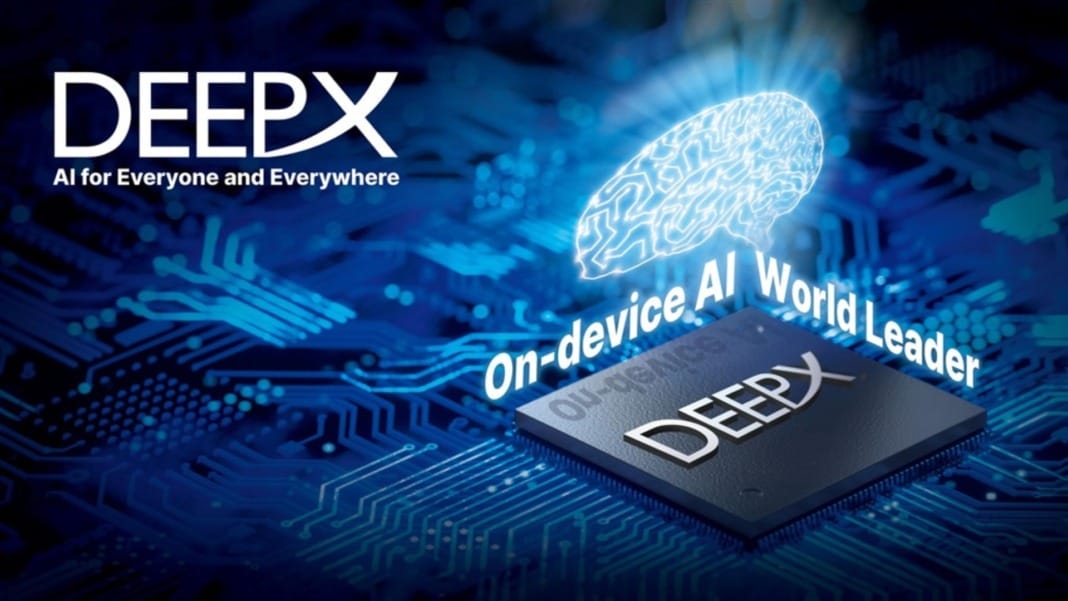South Korean AI technology firm DeepX is making big strides by partnering with LG to bring its artificial intelligence (AI) chips to various industries. DeepX wants to expand its footprint with cutting-edge AI solutions, from mobile devices and cars to white goods. The company, known for its deep learning innovations, is set to make AI more accessible across several sectors, including robotics, healthcare, and autonomous systems.
In May 2024, at the Embedded Vision Summit, DeepX revealed its latest AI chips, the V1 and M1, designed for various AI applications. These chips represent the first generation of DeepX’s technology, focussing on on-device AI and autonomous robots. The company also teased its next-generation chip, which promises even more advancements.
V1 chip: compact and cost-effective
The V1 system-on-chip (SoC), formerly called the L1, is affordable, priced under US$10. Built using Samsung’s 28-nanometre process, the V1 integrates the DeepX 5-TOPS neural processing unit (NPU) alongside quad-RISC-V CPUs and a 12-megapixel image signal processor (ISP). This combination allows the chip to run the YOLO v7 model at 30 frames per second while only consuming 1-2 watts of power.
Designed to handle the latest convolutional neural network (CNN) algorithms, the V1 SoC is well-suited for products such as IP and CCTV cameras, robotic cameras, and drones. It provides high performance in computer vision tasks and is a versatile solution for many AI-powered devices.
M1 chip: power-packed performance
DeepX’s other chip offering, the M1, is a larger accelerator designed to work alongside a host CPU. It boasts impressive AI performance, reaching up to 25 TOPS (trillions of operations per second) and consuming 5 watts of power. The M1 is known for delivering excellent cost, power, and performance efficiency. It is ideal for use in consumer and industrial robots, AI-powered machines, smart factories, and edge computing systems.

DeepX’s collaboration with LG marks an exciting new chapter for the company. DeepX CEO Lokwon Kim confirmed that the partnership aims to optimise large language models (LLMs) for mobile devices, cars, and home appliances. In an interview with Sally Ward-Foxton from EE Times, Kim said, “AI in the device makes sense for their business model for LLMs, that’s why we’re collaborating.”
LG provides its LLM technology to help DeepX understand the model’s characteristics and optimise it for on-device applications. The partnership aims to create an NPU chip optimised for running LLMs directly on devices, reducing the need for cloud computing. Initially, the chip will function as an accelerator, but DeepX expects it will take another 3 to 5 years to develop a fully LLM-capable SoC.
V3 chip on the horizon
Looking ahead, DeepX is working on its V3 chip, developed in response to customer feedback in China and Taiwan. The V3 is expected to feature a 15-TOPS dual-core NPU with quad-Arm Cortex A52 CPU cores. It will also operate below 5 watts on average, balancing performance and power efficiency.
“We previously used a RISC-V CPU, but customers wanted Arm,” said Kim. “That’s why we targeted an Arm quad-core there. Customers also wanted USB 3.1 and a more powerful ISP, not an upgrade on the NPU. That’s why we redesigned it.”
The shift to Arm CPUs reflects a growing demand for better security solutions, which the Arm ecosystem is better equipped to provide. Many customers are building security camera systems, and others want to run robot operating systems, which are supported on Arm but have yet to be available on RISC-V.
Despite focussing on Arm with the V3 chip, DeepX is committed to supporting RISC-V and Arm architectures. The company will continue to offer its RISC-V-based V1 chip while rolling out samples of the Arm-based V3 by the end of 2024.





